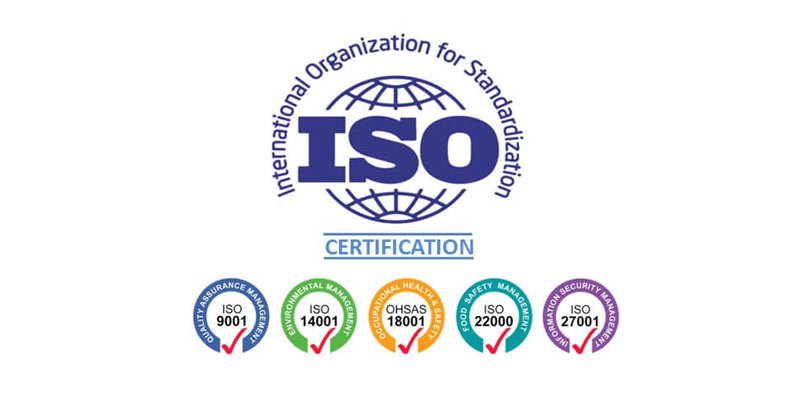
ISO certification cost + All ISO cost involve
If you go on the internet and type in, “ISO certification cost,” you will get...
Read MoreBusinesses across the world follow the guidelines recommended by International Organization for Standardization (ISO) as they provide efficiency, safety, and sustainability to their processes. Similar to how a seatbelt provides safety in a car, an ISO certification provides assurance to your potential customers about your organisation’s processes, people, or systems.
To achieve certification, you have to prove that your business meets the requirements of the standard. Although this sounds intimidating, a lot of the requirements in the standard are general good business practices. We will help you understand the certification process by outlining the exact steps that you need to take in this article.
International Organization for Standardization (ISO) is a global federation of national standard bodies. It is a non-governmental organisation that comprises of standard bodies from more than 160 countries, with one standard body representing each member country.
ISO members are national standard organisations that collaborate in the development and promotion of international standards for working conditions, technology, societal issues, scientific testing processes, and more.
Based on consensus, ISO and its members create documents detailing these recommendations. Essentially, the General Assembly in ISO is its decision-making body which consists of representatives from members and elected leaders called principal officers. Based on their expertise, consensus and recommendations, the ISO standards are developed.
Individuals and companies can get ISO certification by implementing ISO standards. This is where the use of ISO consulting services becomes very important.

In relation to ISO standards, certification is a certifying body’s assurance that an organisation’s service, system or procedure meets the requirements of the standard. Although, ISO develops the standard, it does not issue the certification. Only third party certification body can certify conformity with those standards. For example, if you want to get ISO 9001 certificate, you should get help from an ISO certification body.
ISO certification is proof from a third party that you comply with an ISO standard. It shows your key stakeholders that you have a well-run business that is structurally stable and ready for growth. This helps you enjoy benefits such as increased efficiency, reduced costs, improved customer satisfaction, more engaged employees, reduced risks, prevention of recurring problems, boosted marketing efforts and improved employee performance.
Overall, your control over the business improves greatly as ISO requires you to regularly monitor, measure, analyse and evaluate the effectiveness of your management system. In order to use the benefits of ISO certification, you must first understand the ISO certification process.

Before your business can get certified, you will first have to develop and document your production process, going on to implement the correct procedure so that you maintain your management system. Essentially, there are four steps to becoming an ISO certified business in Australia.
After you have chosen the right option for your business among the types of ISO certificates, The first step of ISO process in Australia is to identify your core business processes. After identifying the processes that you want to certify, document these processes by acquiring inputs from employees.
It is necessary to ensure that the procedures are being performed as they have been described in your documentation. For this, make sure that your employees are properly trained to perform the newly modified tasks. Additionally, to ensure that the implementation remains effective, create efficient reporting systems to cover every aspect of your procedure including inspection, testing, management, monitoring and deriving statistical information.
At this stage, it is very important to use a professional consultant and auditor. The ISO consultant and auditor will help you prepare and adjust the documents required to obtain ISO 27001, 45001, 9001, 14001 or other types of ISO certification.
Periodically monitoring the effectiveness of your processes by deriving and utilising measurable data helps in the management review meetings, as you are able to highlight areas which need improvement. Reviews are vital for testing the performance of your system.
Once your system has been implemented and it has been running for a few months, it is now time to conduct an audit to review the processes for compliance and effectiveness. For verifying that your system is effective, you can observe and interview people that interact with the procedures, or look at the sample records.
This will allow you to identify and report strengths and weaknesses of your management system, so that you can take corrective or preventive actions as required.
After implementing the corrective methods and ensuring that there are no non-conformances between your procedures and the requirements outlined in the standard, it is now time to register your system. Submit your management system documentation for review and prepare for the audit by an external third party certification body to confirm that the system’s requirements are being satisfied and the management system is implemented effectively.
The specific requirements for ISO certificate depends upon the standard that you have selected. For example, ISO 9001 requires businesses to have a clear quality policy and effective monitoring systems to measure the efficiency of their Quality Management System (QMS). Similarly, ISO 22000 requires organisations to have a clear food safety policy, a food safety team and strict adherence to applicable prerequisite programmes. Having said that, the general ISO requirements in Australia are the allocation of proper resources, internally auditing the system, conducting formal training, choosing an accredited auditor, maintaining documentation in a systematic manner and showcasing leadership commitment.
ISO creates standards that focus on quality, sustainability, and efficiency. The benefits of acquiring ISO standards include improved control over your business, improved employee performance, risk management, and opportunity exploration. To become ISO certified, businesses must develop the management system, and implement and run it for a few months, going on to test its effectiveness. After the system has been verified, it is time to register your system by selecting the appropriate auditing body for external registration.
ISO certification gives your organisation a competitive edge. By helping you increase operational efficiency and overall product consistency, your business credibility and authority will soar to new heights.

Copyright © 2024 The ISO Council | Privacy Policy